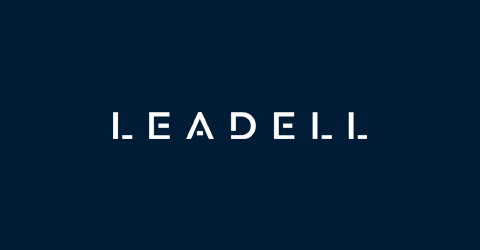Best Biotechnology Lawyers in Republic of Lithuania
Share your needs with us, get contacted by law firms.
Free. Takes 2 min.
Or refine your search by selecting a city:
List of the best lawyers in Republic of Lithuania
About Biotechnology Law in Republic of Lithuania:
Biotechnology law in the Republic of Lithuania regulates the use of biological processes, organisms, or systems to develop products and technologies. This field encompasses a wide range of industries, including agriculture, pharmaceuticals, and environmental sciences. The laws in Lithuania aim to ensure ethical and safe practices in biotechnology while promoting innovation and economic development in the sector.
Why You May Need a Lawyer:
You may need a lawyer for guidance on compliance with biotechnology regulations, drafting and negotiating contracts, resolving intellectual property disputes, or seeking remedy for any harm caused by biotechnological activities. A lawyer with expertise in biotechnology law can help you navigate complex legal issues and protect your interests in the industry.
Local Laws Overview:
In Lithuania, the main legislation governing biotechnology includes the Law on Genetically Modified Organisms, the Law on Biotechnology, and the Law on Conservation and Sustainable Use of Genetic Resources. These laws set out requirements for the handling, research, and commercialization of biotechnological products, including GMOs. It is important to comply with these laws to avoid legal repercussions and ensure responsible conduct in biotechnology activities.
Frequently Asked Questions:
Q: What is the process for obtaining approval to conduct research on genetically modified organisms in Lithuania?
A: To conduct research on GMOs in Lithuania, you must submit an application to the competent authorities, provide comprehensive information on the intended research, and comply with the requirements set out in the Law on Genetically Modified Organisms.
Q: Are there any restrictions on the import and export of biotechnological products in Lithuania?
A: Yes, there are specific requirements for importing and exporting biotechnological products in Lithuania, including obtaining permits from the relevant authorities and complying with international treaties and agreements.
Q: What are the penalties for non-compliance with biotechnology laws in Lithuania?
A: Non-compliance with biotechnology laws in Lithuania can result in fines, suspension of activities, or other administrative sanctions. It is essential to adhere to the legal requirements to avoid such consequences.
Q: How can I protect my intellectual property rights in the biotechnology sector in Lithuania?
A: You can protect your intellectual property rights in biotechnology by registering patents, trademarks, or copyrights for your innovations and inventions. Consulting with a lawyer specialized in intellectual property law is crucial to safeguard your rights effectively.
Q: What are the regulations on the use of biotechnological products in agriculture in Lithuania?
A: The use of biotechnological products in agriculture in Lithuania is subject to strict regulations, including safety assessments, labeling requirements, and environmental impact evaluations. Compliance with these regulations is essential for ensuring sustainable and responsible agricultural practices.
Q: How can I resolve disputes related to biotechnology in Lithuania?
A: Disputes related to biotechnology in Lithuania can be resolved through negotiation, mediation, arbitration, or litigation. Seeking legal advice from a biotechnology lawyer can help you explore the best options for resolving disputes effectively.
Q: Are there any incentives or funding opportunities for biotechnology research and development in Lithuania?
A: Yes, there are various incentives and funding opportunities available in Lithuania to support biotechnology research and development, including grants, subsidies, and tax incentives. It is essential to explore these options to promote innovation and growth in the biotechnology sector.
Q: Can I transfer biotechnological products or technologies across borders in Lithuania?
A: The transfer of biotechnological products or technologies across borders in Lithuania is subject to international trade regulations, import/export restrictions, and intellectual property laws. Consulting with legal professionals can help you navigate the legal requirements for cross-border transfers effectively.
Q: How can I ensure compliance with data protection laws in biotechnology research in Lithuania?
A: To ensure compliance with data protection laws in biotechnology research in Lithuania, you must follow the General Data Protection Regulation (GDPR) requirements, obtain informed consent from research participants, and implement appropriate security measures to safeguard personal data effectively.
Q: What are the ethical considerations in biotechnology research and development in Lithuania?
A: Ethical considerations in biotechnology research and development in Lithuania include respect for human rights, animal welfare, environmental sustainability, and public health. Adhering to ethical principles is essential for promoting responsible and socially acceptable biotechnological practices.
Additional Resources:
For further information and assistance in navigating biotechnology law in Lithuania, you can contact the State Food and Veterinary Service, the Ministry of Environment, the Lithuanian Innovation Centre, or seek guidance from legal professionals specializing in biotechnology law.
Next Steps:
If you require legal assistance in the field of biotechnology in Lithuania, it is advisable to consult with a knowledgeable lawyer who can provide personalized advice and representation tailored to your specific needs. Be proactive in understanding and complying with the relevant laws and regulations to ensure a successful and compliant biotechnological venture.
Lawzana helps you find the best lawyers and law firms in Republic of Lithuania through a curated and pre-screened list of qualified legal professionals. Our platform offers rankings and detailed profiles of attorneys and law firms, allowing you to compare based on practice areas, including Biotechnology, experience, and client feedback.
Each profile includes a description of the firm's areas of practice, client reviews, team members and partners, year of establishment, spoken languages, office locations, contact information, social media presence, and any published articles or resources. Most firms on our platform speak English and are experienced in both local and international legal matters.
Get a quote from top-rated law firms in Republic of Lithuania — quickly, securely, and without unnecessary hassle.
Disclaimer:
The information provided on this page is for general informational purposes only and does not constitute legal advice. While we strive to ensure the accuracy and relevance of the content, legal information may change over time, and interpretations of the law can vary. You should always consult with a qualified legal professional for advice specific to your situation.
We disclaim all liability for actions taken or not taken based on the content of this page. If you believe any information is incorrect or outdated, please contact us, and we will review and update it where appropriate.
Browse biotechnology law firms by city in Republic of Lithuania
Refine your search by selecting a city.













